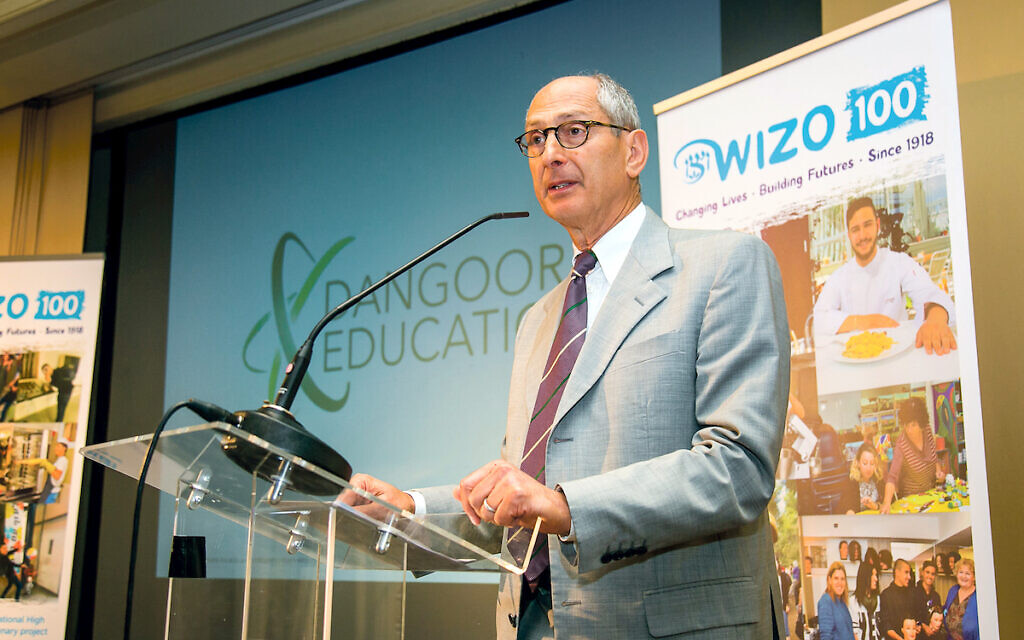David Dangoor: The books that have shaped my life
From Why We Sleep by Matthew Walker to Shimon Peres' autobiography No Room for Small Dreams, businessman and philanthropist David Dangoor reveals his desert island novels.
In the latest in our series of podcasts with Jewish people who are changing the world, Zaki Cooper talks to businessman and philanthropist David Dangoor about his life, career and the books that inspire him.
David comes from a well-known Iraqi family and grew up in Baghdad. His business background is in computing, but he has worked extensively in the property industry.
He has been very active as a lay leader in the Jewish community, and involved in a whole range of philanthropy, including as founder of Dangoor Education (http://dangooreducation.com).
Get The Jewish News Daily Edition by email and never miss our top stories Free Sign Up
You grew up Baghdad in the 1950s. What are your earliest childhood memories?

Sleeping out under the stars in the summer.
The weather in Baghdad is much warmer and drier. We used to drag our beds up onto the flat roof because of the heat and sleep there. It was great fun for a kid.
I never knew the dark political side that our parents did.
The first book you have selected is A Fine Balance by Rohinton Mistry, a novel set in 1950s India. What attracted you to this story?
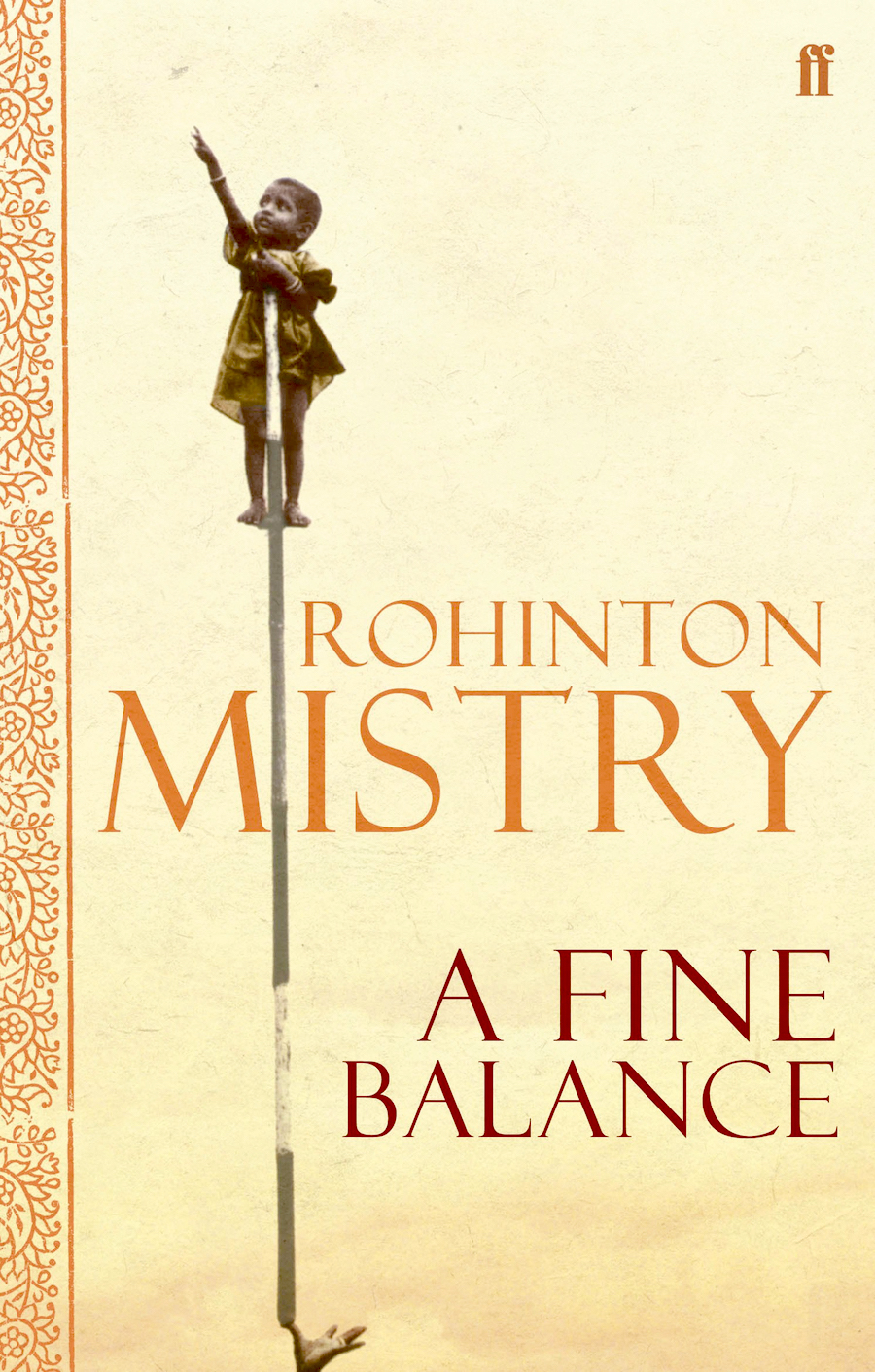
Mistry captures the texture of India very well. But for me it was a very moving human story about the resilience of the human spirit in difficult times.
It reminded me a lot of the 19th century history of Baghdad, where hunger and danger is never far away. Sadly, in India, many manual labourers, as a result of Covid, have lost their jobs. They’ve no money, no food and are at the mercy of loan sharks.
I found it a gripping story – very absorbing and moving.
You worked for IBM early in your career and then went to work with your father to develop a property business.
The second book you have selected is Thinking Fast and Slow by Daniel Kahneman, an idea that is useful for business. Why do you like that book?
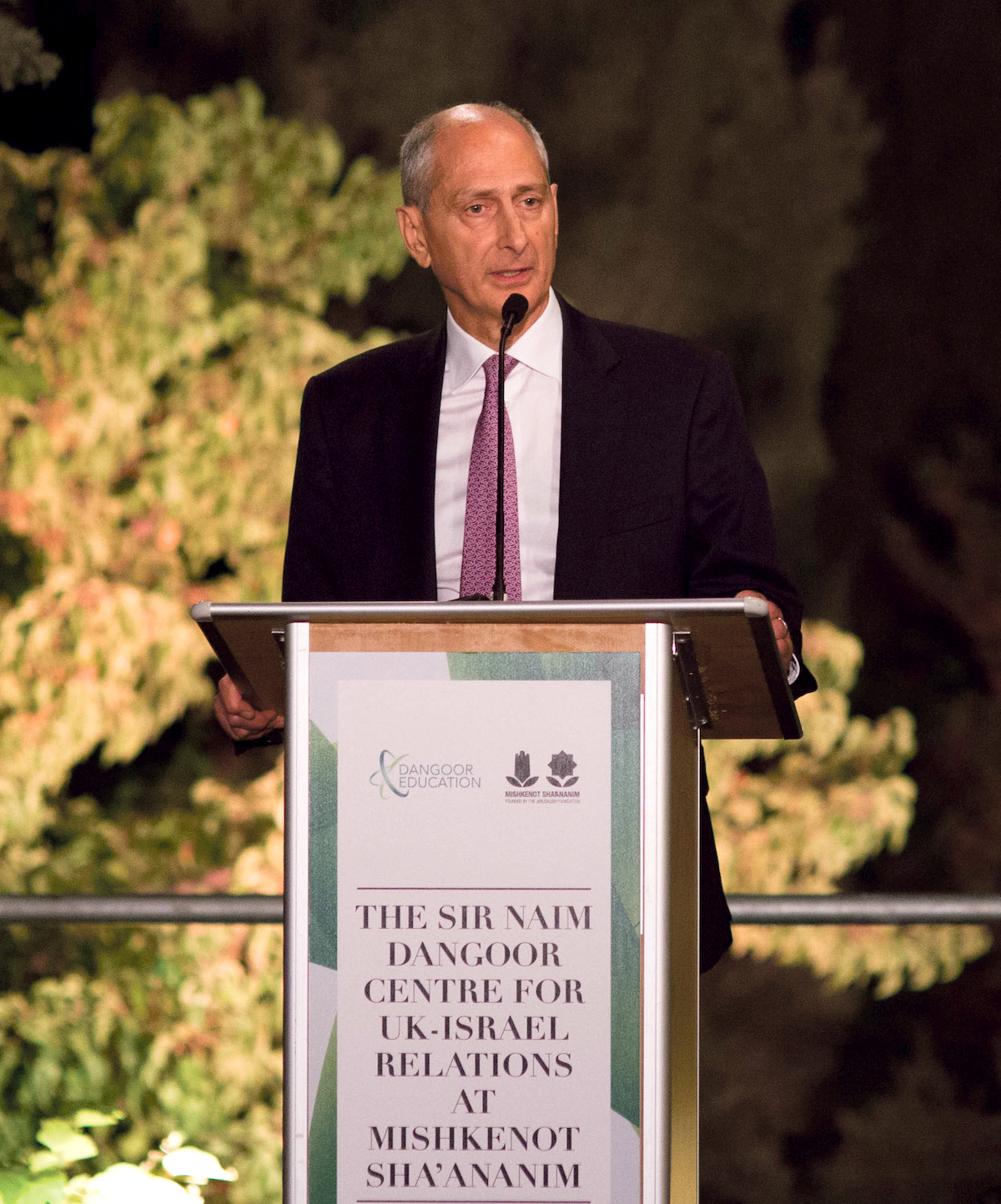
As a scientist, I assumed that I always thought logically, but when I read this book, I was astonished at how constantly I was making the wrong choices.
It was a real eye-opener. It’s a book I keep going back to again and again to try to recalibrate the way I think.
There are some very interesting tales about Kahneman’s activity with the Israeli Air Force. He won the Nobel Prize.
You are extremely active in the Jewish community. You were president of the S&P Sephardi Community between 2011 and 2016. What was that like?
I came to the UK in 1960 and the Lauderdale Road Spanish & Portuguese Synagogue became our synagogue.
I have been a regular there for many years. With these communal organisations, if those who benefit don’t support them, who will? After 30 years of being involved in most of the voluntary activities, the role of president fell onto my shoulders. What I really enjoyed was to see how many people give up their time freely for the benefit of others. That’s one of the wonderful things about the UK Jewish community generally.
Listen to the first clip of the podcast here:
Related to this is your love for Israel. Your next book is The Accidental President by A J Baime about President Truman. Why that book and what’s the relevance to Israel?
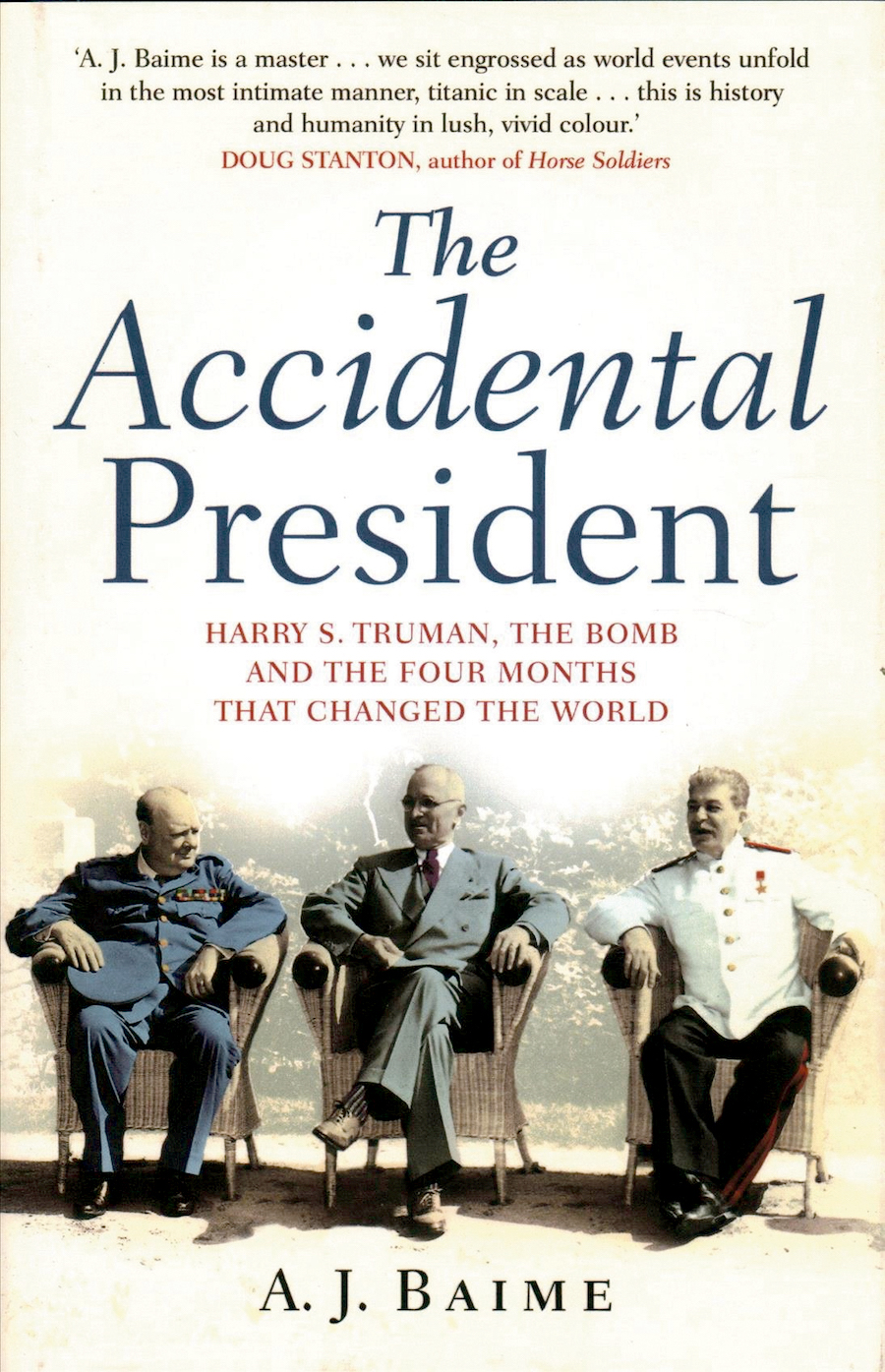
This concentrates on the first four months Harry Truman was president, during which the world order in which we live today was established.
Truman never wanted high office. Roosevelt had to push him to become his 1944 running mate and died soon after his fourth term began.
He had to deal, in just his first four months, with the fall of Germany, starvation in Europe and the Marshall Plan, dropping the atom bomb on Japan, the division of Berlin and the creation of the United Nations, and he was very helpful in the early days of the creation of the state of Israel. I really enjoyed reading this book.
The next book is also Israel-related, No Room for Small Dreams by Shimon Peres. Why do you like that particular book?
Shimon Peres came to Palestine from Poland in 1934 when he was aged 11. This book charts his life up till a few weeks before he died suddenly aged 93. It really is an overview of the history, the creation and the growth of Israel in the past nearly hundred years through the eyes of one of its most important sons. I couldn’t put the book down. It’s a fantastic read.
Listen to the second clip of the podcast here:
You do a lot of philanthropy in Israel and also the UK, and one of the areas is education. What drives that passion for education?
When we came to the UK from Iraq, my father had to leave behind all the businesses he had built up.
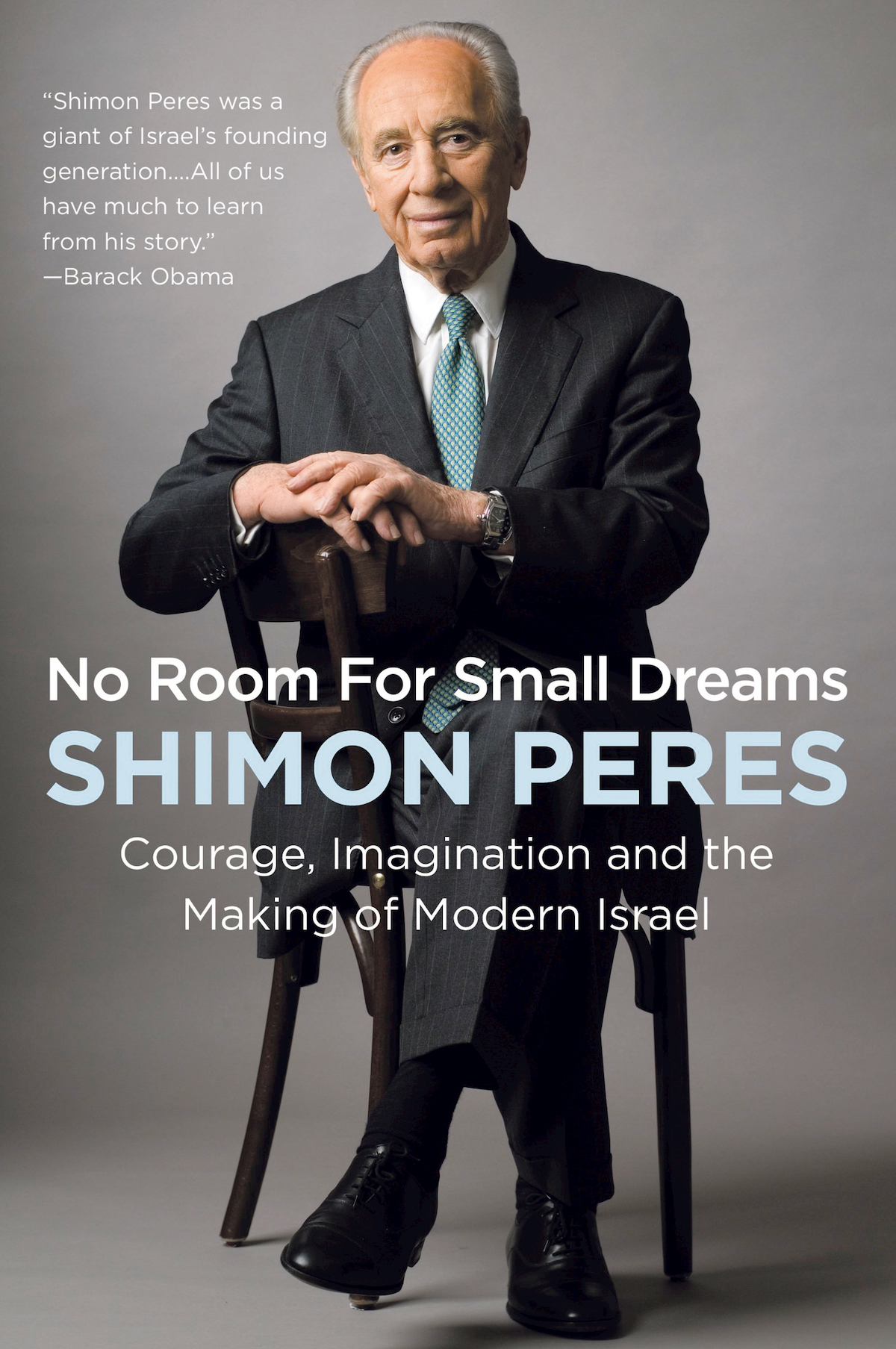
All we brought with us was our education, and this country welcomed us, allowed us to rebuild our lives.
There comes a time when you want to give something back. Like many people, we support Jewish education but, as an immigrant to this country, we felt that supporting others who have come in to be able to make a contribution would be a good way to say thank you.
Another area you are particularly committed to his is interfaith and you were the original backer of the British Library’s Discovering Sacred Texts. Tell us more.
I think today a national library cannot exist only in its buildings.
When we funded the creation of the Discovering Literature website 10 years ago, the whole website of the British Library used to get just one million visits a year. Now Discovering Literature alone gets five million visits from all over the world.
With Discovering Sacred Texts, we want to try to do the same thing. We had hoped for 250,000 unique visitors in the first year that has just finished. In fact, it is already 340,000. I expect within a few years it will be up to five million and this will be a chance for modern Britain to show off its multifaith background.
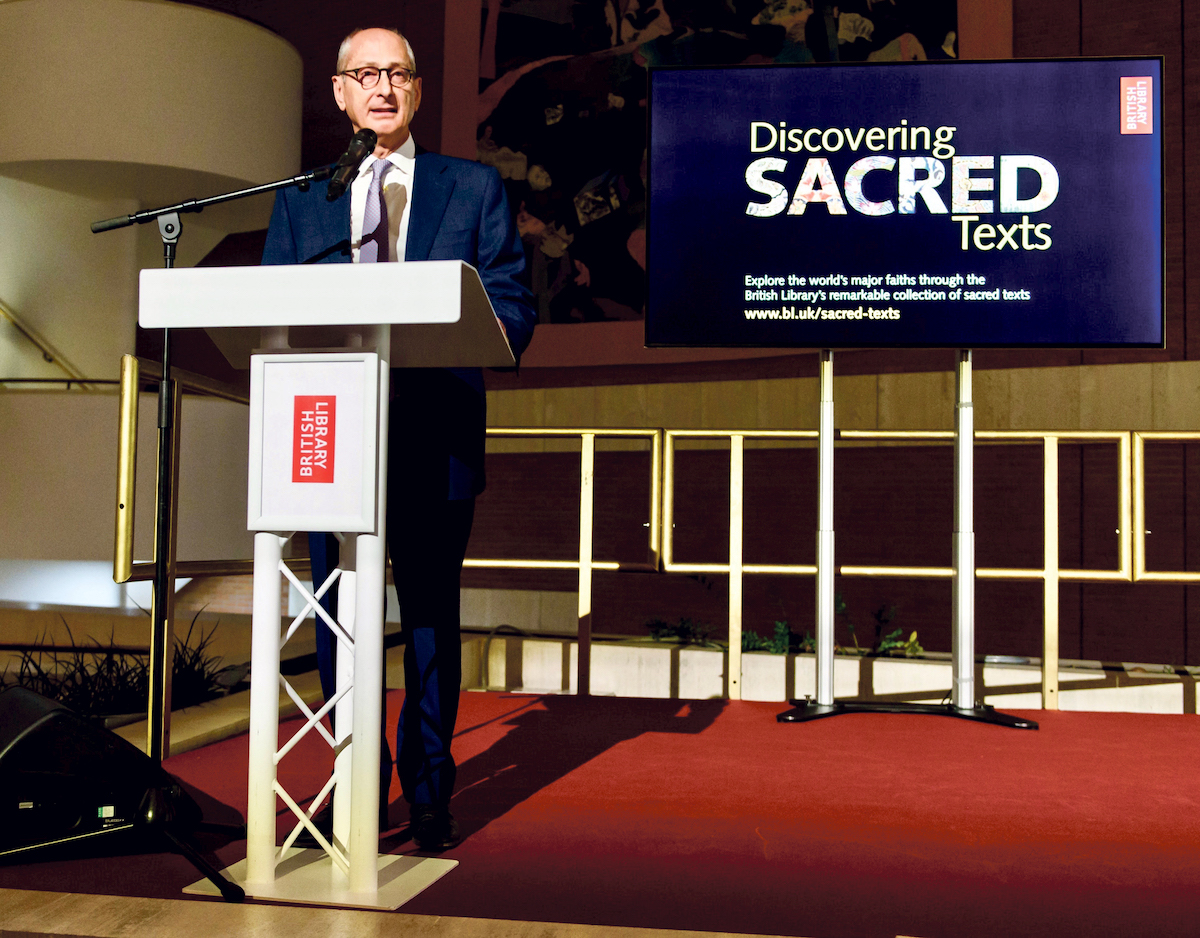
We’ve only scratched the surface of all your different projects. You are a man who likes to balance lots of different things, which brings us on to your last book – Why We Sleep by Matthew Walker. What’s special about this title for you?
This is a very important book and it’s a must-read. We spend nearly a third of our lives asleep or in bed trying to get to sleep.
What Professor Walker does is give good advice on how to benefit our mood, to benefit our health, our relationships, and all of it while lying in bed. It’s a subject that very few people know enough about.
Those to whom I recommended this book have said it has changed their lives.
Listen to the full podcast here:
David’s Top Reads
- A Fine Balance by Rohinton Mistry
- Thinking Fast and Slow by Daniel Kahneman
- The Accidental President by A J Baime
- No Room for Small Dreams by Shimon Peres
- Why We Sleep by Matthew Walker

Thank you for helping to make Jewish News the leading source of news and opinion for the UK Jewish community. Today we're asking for your invaluable help to continue putting our community first in everything we do.
For as little as £5 a month you can help sustain the vital work we do in celebrating and standing up for Jewish life in Britain.
Jewish News holds our community together and keeps us connected. Like a synagogue, it’s where people turn to feel part of something bigger. It also proudly shows the rest of Britain the vibrancy and rich culture of modern Jewish life.
You can make a quick and easy one-off or monthly contribution of £5, £10, £20 or any other sum you’re comfortable with.
100% of your donation will help us continue celebrating our community, in all its dynamic diversity...
Engaging
Being a community platform means so much more than producing a newspaper and website. One of our proudest roles is media partnering with our invaluable charities to amplify the outstanding work they do to help us all.
Celebrating
There’s no shortage of oys in the world but Jewish News takes every opportunity to celebrate the joys too, through projects like Night of Heroes, 40 Under 40 and other compelling countdowns that make the community kvell with pride.
Pioneering
In the first collaboration between media outlets from different faiths, Jewish News worked with British Muslim TV and Church Times to produce a list of young activists leading the way on interfaith understanding.
Campaigning
Royal Mail issued a stamp honouring Holocaust hero Sir Nicholas Winton after a Jewish News campaign attracted more than 100,000 backers. Jewish Newsalso produces special editions of the paper highlighting pressing issues including mental health and Holocaust remembrance.
Easy access
In an age when news is readily accessible, Jewish News provides high-quality content free online and offline, removing any financial barriers to connecting people.
Voice of our community to wider society
The Jewish News team regularly appears on TV, radio and on the pages of the national press to comment on stories about the Jewish community. Easy access to the paper on the streets of London also means Jewish News provides an invaluable window into the community for the country at large.
We hope you agree all this is worth preserving.
- Features
- Desert Island Books
- David Dangoor
- Zaki Cooper
- A Fine Balance by Rohinton Mistry
- Thinking Fast and Slow by Daniel Kahneman
- he Accidental President by A J Baime
- No Room for Small Dreams by Shimon Peres
- Why We Sleep by Matthew Walker
- Rohinton Mistry
- Daniel Kahneman
- A J Baime
- shimon peres
- Matthew Walker
-
By Brigit Grant
-
By Laurent Vaughan - Senior Associate (Bishop & Sewell Solicitors)
-
By Laurent Vaughan - Senior Associate (Bishop & Sewell Solicitors)
-
By Laurent Vaughan - Senior Associate (Bishop & Sewell Solicitors)
-
By Laurent Vaughan - Senior Associate (Bishop & Sewell Solicitors)


